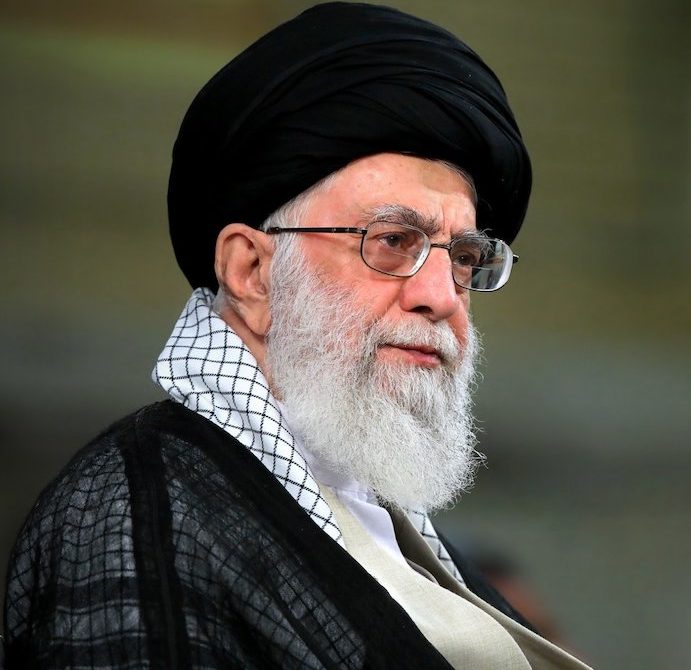June 28, 2019
by Warren L. Nelson

President Trump has signed a new executive order imposing a whole new category of “hard-hitting” sanctions that will deny Supreme Leader Ali Khamenehi any kind of US visa, whether to visit the Grand Canyon or to immigrate.
This was the third new executive order in recent weeks creating new categories of sanctions on Iran. The earlier ones target Iran’s metals sector and its petrochemicals industry.
But the actual sanctions are the same ones the United States has imposed for decades on Iranian officials, businesses and state agencies—freezing their assets found inside the United States, denying visas and barring American “persons” from conducting business with them. Over the decades, more than 1,000 Iranian citizens and entities have had such sanctions slapped on them.
The new category Trump created in his executive order signed June 24 specifically targets the Office of the Supreme Leader.
But the actual list of those sanctioned that was issued with the executive order only names nine people—Khamenehi, the commanders of the land, sea and air arms of the Pasdaran, and the commanders of the Pasdaran’s five naval districts.
Trump told reporters in the Oval Office for the signing that his executive order denies Khamenehi and others in his office access to the US financial system and any assets in the US. But they have long been denied such access under previous sanctions, so the effort with the grand Oval Office announcement sounded more like a public relations exercise.
(When Trump read his statement, he misread it, saying he was sanctioning Ayatollah “Khomeini.” The printed text said Khamenehi.)
The New York Times said, “The Iranian officials most likely do not keep substantial assets in international banks, if any at all, or use those institutions for transactions, and any additional pressure from the new sanctions is likely to be minimal. The largely symbolic nature of this round of sanctions indicates that the Trump Administration is running low on arrows in its economic quiver.”
Robert Malley, the president of the International Crisis Group, a global think tank, said, “Symbolic politics at its worst—at every level, it is illogical, counterproductive and useless.”
Other big names in the Islamic Republic will also be targeted. Treasury Secretary Steven Mnuchin said the administration would add Foreign Minister Mohammad-Javad Zarif to the sanctions list in a few days. That will pose a problem as Zarif normally flies to New York multiple times each year to conduct official business at the UN. It is expected the State Department will waive the visa ban in his case.
In Tehran, President Rohani reacted to new sanctions with unusual vehemence, calling Trump “mentally retarded” and a “liar,” while labeling the new sanctions “outrageous and stupid.”
In a speech broadcast on national television, Rohani said, “Would any government with a bit of wisdom [sanction] the highest authority of a country? And not only a political authority, but a religious, social and spiritual one—and not the leader of Iran only, but the leader of an Islamic revolution all over the world.”
He said, “Today, the Americans have become desperate and confused. This has made them take unusual measures and talk nonsense.”
Rohani has normally refrained from such abusive language. But in recent weeks he has spewed bile at the United States in numerous speeches, apparently concluding such language is needed to preserve his political standing within the Islamic Republic.
Hours later, Trump went in rhetorical overdrive. Instead of pointing to Rohani’s words and saying, “See, what we have to deal with,” Trump sought to out-insult Rohani, surrendering the high ground. In a morning tweet, Trump said Rohani’s “very ignorant and insulting statement … only shows that they do not understand reality. Any attack by Iran on anything American will be met with great and overwhelming force. In some areas, overwhelming will mean obliteration. No more John Kerry & Obama!”
But the threat of “overwhelming force” and “obliteration,” coming four days after he canceled a modest retaliatory attack on three Iranian military sites, struck many as little more than a schoolyard taunt.
At the Foreign Ministry, spokesman Abbas Musavi said, “The useless sanctions against Iran’s leader and the commander of its diplomacy means the permanent closure of the channel of diplomacy with this desperate American administration.”
In his formal written statement, Trump corrected an error he has been making repeatedly in off-the-cuff remarks in recent days, where he has said his only goal is to stop Iran from getting nuclear weapons.
But this time Trump said, “We will continue to increase pressure on Tehran until the regime abandons its dangerous activities and its aspirations, including the pursuit of nuclear weapons, increased enrichment of uranium, development of ballistic missiles, engagement in and support for terrorism, fueling of foreign conflicts, and belligerent acts directed against the United States and its allies.”
In addition to the sanctions imposed directly on the named individuals and institutions, the new executive order also threatens, as is usual, to cut off from the US financial system any foreign financial institution that provides “significant financial services” to those sanctioned. That has already driven most banks away from doing any business with Iran. Sometimes, in a sign of excess zeal, some bank officers have even closed the personal accounts of Iranians living abroad, though no sanctions bar them from having bank accounts.
